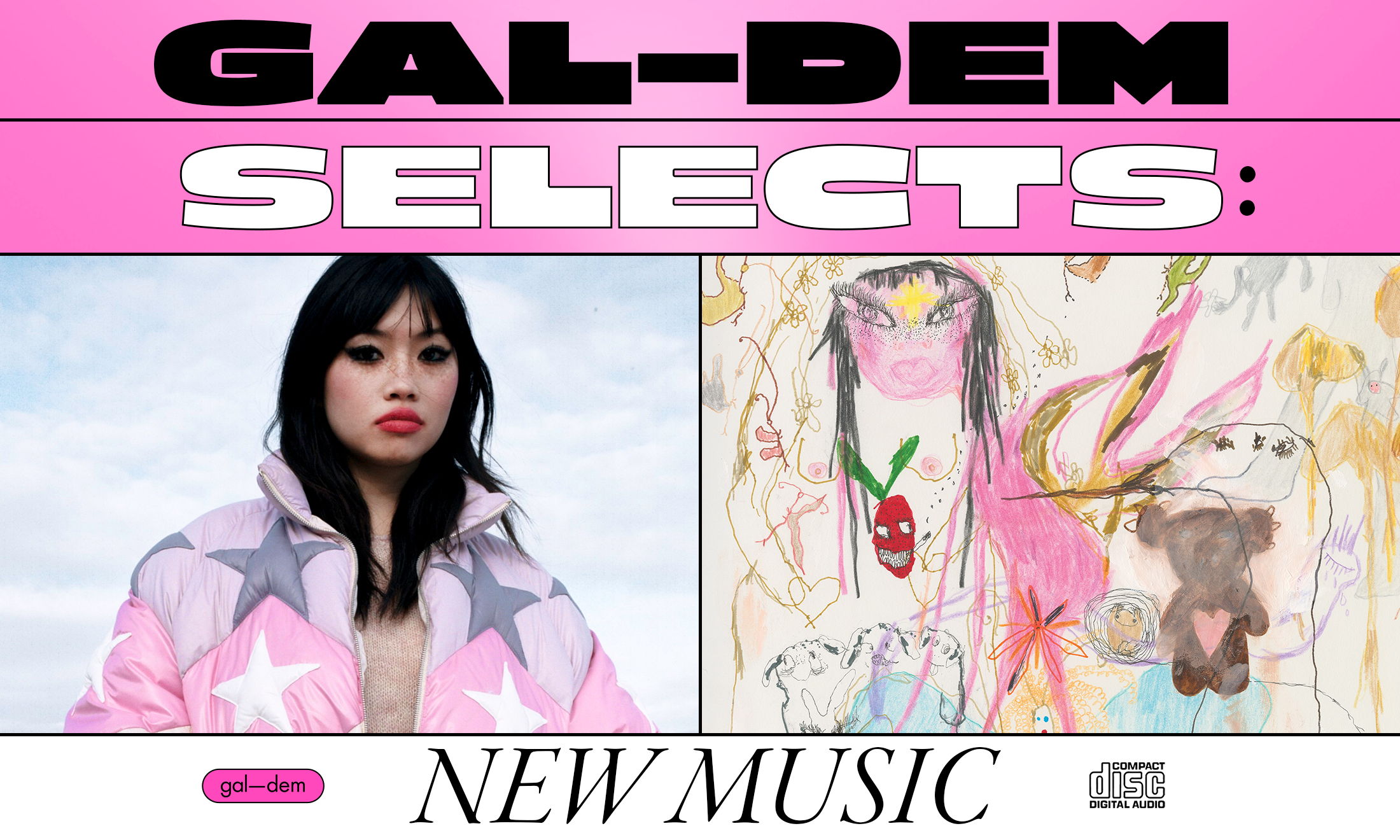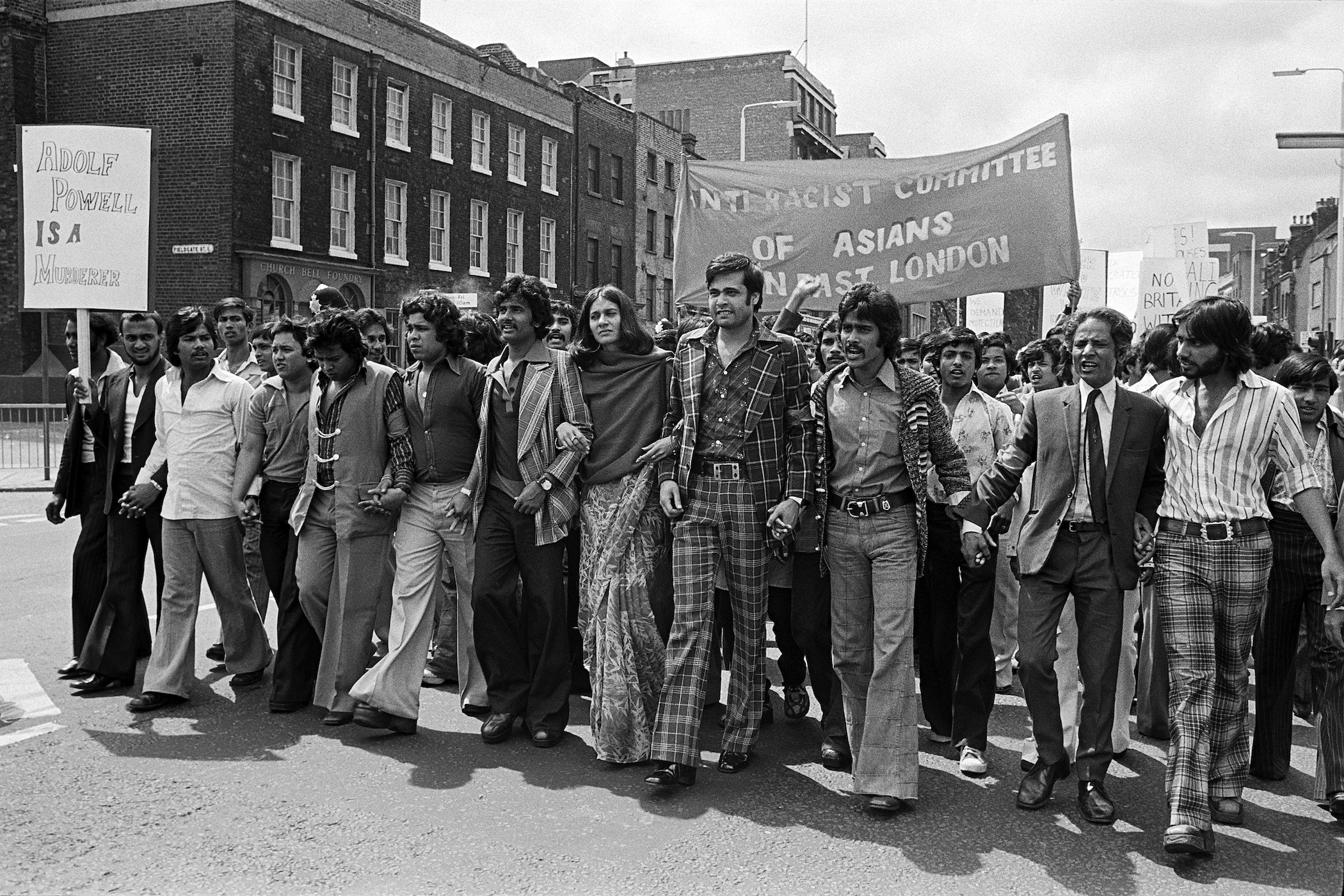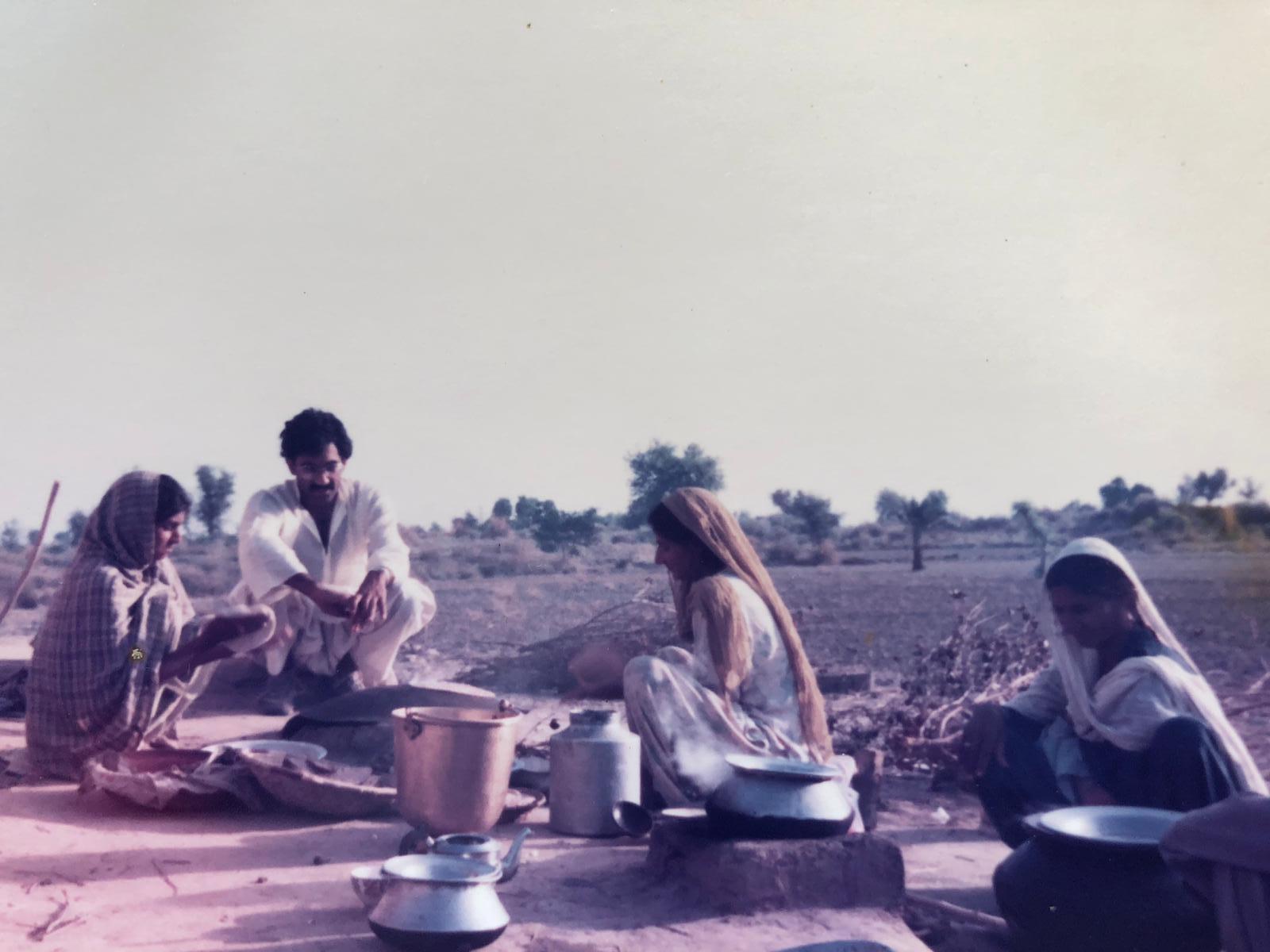Tara Lily is creating the connections she craves
The Peckham-born, British-Bengali singer talks blending genres, breaking out of boxes, and no longer caring what people think.
Tara Joshi
29 Mar 2023

courtesy of the artist
A lot about Tara Lily feels like liquid. The British-Bengali singer, songwriter and multi-instrumentalist has a pure voice that pours out of her to fill a room; she plays the piano in cascading waves; and even her dark hair ripples down past her shoulders like she’s a displaced mermaid. Her work even sits at the confluence of a multitude of genres – there are nods to soul, drum and bass, Indian classical, R&B and she speaks of her love for Bengali folk – but is perhaps most rooted in jazz (she studied it at Trinity Laban Conservatoire).
But if the liquid analogy suggests something intangible, there’s also something indisputably fierce and strong about the Peckham-born artist; she has had to fight for her space in an industry that is hardly known for catering to people with her background. Co-signed by Virgil Abloh, Tara’s the first artist to sign to Motown’s UK subsidiary, and she’s got a couple of acclaimed EPs under her belt: last year’s Last Flight Out was a beautiful rumination on themes of immigration, movement and romantic love.
“Tara Lily is the sort of person who makes things happen”
When we meet in Mumbai on a balmy winter evening, she’s in the midst of a South Asia tour she’s doing off her own back. She’s been unwell but still plays a note-perfect show that night to a glowing reception.
Tara Lily is the sort of person who makes things happen.
A month or so after Mumbai, we’re both back in London talking over a video call. She’s got more shows lined-up around the world, is working on a “deeper, darker” new project, and seems – happily, serenely, but still defiantly – in her own lane.
gal-dem: Do you remember how you became drawn to music?
Tara Lily: Both my parents were self-taught musicians. My dad played tabla and harmonium, my mum was a singer, she was in kind of a punky folk band. They ran away together from Bangladesh and got married – and so when I grew up in South London, I grew up with them playing all their music, playing instruments in the house. So from really young, I’d have all of that sort of Bengali folk music and rock which really influenced me as a child to be musical. To listen to music in a different way, to hear different things in music and to be very much an improviser; I think both my parents being self-taught gave me that interest in improvisations and trying new styles.
So when did you start playing and performing?
When I got to five or six, I had a little keyboard on my kitchen floor – a one-octave Casio. I started playing songs on that and eventually got lessons at school for piano and singing. I went and studied at a jazz conservatoire for four years… and I was like the only girl in my year, the only South Asian. I definitely felt very out of place because it was very white, very private school kind of energy – and very male. I definitely felt seen in the wrong way – I’ve always felt like that. Like I’m not taken seriously, or I’m seen as a girl or attractive rather than like, wow, like I’ve actually managed to get into this place without having this incredible schooling and resources everyone else had. So that also made me feel like a bit of an outsider.
Can you tell us a bit about how you blend your heritage into your sound? Some of your songs have sitar, is that something that’s important to you?
I’d trained in Kathak and classical dance from a young age, and when I finished my degree I wanted to look into my own background. I started doing Indian classical, Carnatic singing and basically bringing across a lot of the jazz. A lot of jazz music is very similar to Indian classical music. So I was kind of doing that transfer of the scales and the chords and looking at those relationships and bringing them together. It’s all about bringing all of these things together to create something unique that’s interesting for me. The other side of that is people obviously think that it’s weird and that it’s not going to make money… which is not great, but I guess my life is about exploration. It’s about being interested. It’s about being fascinated. It’s about living, experiencing everything.
I sometimes think it can be difficult when artists are only really called upon to speak about their identity rather than their craft. In a lot of UK press, I worry the framing can end up reductive – ‘she’s a woman of colour, she’s South Asian’ – but when we met in India, you got to just be seen as a musician. Is that something you think about?
It’s a very fine line, isn’t it? Because we’re also not being seen because we’re South Asian – we’re being put away, we’re being told, ‘Oh, you can’t be played on 1Xtra. You go on BBC Asian.’ Why should I go on BBC Asian and not 1Xtra? Like, I was born in London, I’m from Peckham! At the same time, we obviously need to be seen. But it was definitely interesting going to India and just being, like… another artist. In the UK, my music is seen in a weird box, but in India suddenly I’m not weird, I’m cool.
“My life is about exploration. It’s about being interested. It’s about being fascinated. It’s about living, experiencing everything”
Is community work important to you? A lot of the performances you’ve done have been community-focussed in some way, like fundraisers for flooding in Bangladesh, plus on socials you’ll sometimes post causes and news stories.
The Bangladeshi flooding fundraiser is a very important topic for me, and it’s good to have something that brings everyone together and brings attention to that cause. In general, I think it’s important to feel connected to people. I feel connected to so many different people on different levels being from South London, from a working class background, growing up here, being South Asian, being connected to the South Asian community in London, being a woman, being a woman in jazz. It’s important to feel connected to people because otherwise you can end up feeling very isolated.
I think the music industry can be quite a dehumanising place unless you find your people.
It’s a business – people ask me all the time, ‘oh, so and so wants to be a singer’ and I really don’t know what to say because the industry is so toxic. Unless you really, really know what the fuck you’re doing. And even then, it’s just not a safe place. There’s no safety net, there’s no one looking out for anyone, it’s completely unregulated. And it’s built on exploitation.
100%. Are you able to make space for caring for yourself within that?
That’s something I struggle with. I’ve started to do more yoga and meditation to try and have some sort of clear space, where I’m not working all the time or having to deal with people. I try to occasionally go out and just not give a fuck or disappear for a day. And I like being around people who are good for me, who lay-low and are nurturing. And my mum is really kind and supportive.
Can you tell us more about your songwriting process?
All the songs I start myself on the piano and then start the production of them; then I take them to someone to kind of work along. I try a lot of different stuff, I explore a lot of different stuff creatively. That’s what I find interesting. I want to try sitar on this, tanpura, saxophone. And some things might work, some might sound awful. But some will be great so I’ll work from there and get to a place where it’s what I’m feeling. It’s a very explorative way to work. On the last EP I was exploring different sounds, too: UK Dance, R&B, jazz and Indian classical. Bringing in Indian classical takes a lot of work because the instrumentation is very different, you’ve got whole different scales and tuning.
Then lyrically I’m exploring my own relationships and feelings, and also other people’s. That’s something that I’m going into more with my next project as well; getting more into those dark, uncomfortable feelings.
Does it ever feel daunting putting your vulnerabilities out there?
Yeah, but you know, I don’t care what anyone thinks about me anymore. I’ve gotten to that place in my life where I’ve gone through so much. I’ve suffered a lot of shit. I’ve had a hard life and there’s nothing anyone can do that could kill me right now. You know? In a way, it’s very liberating for me, I’ve got to a place in my life where I’m just like, ‘I don’t give a fuck what anyone thinks about me, I’m just going to do whatever I’m going to do.’ And that’s it. I feel like I belong, I feel like I have a space and I feel connected to people and that gives me strength to continue doing stuff and to be proud of who I am. Like: yeah, I am weird and I’m different and I’m talented; and I’m just gonna go with that.









